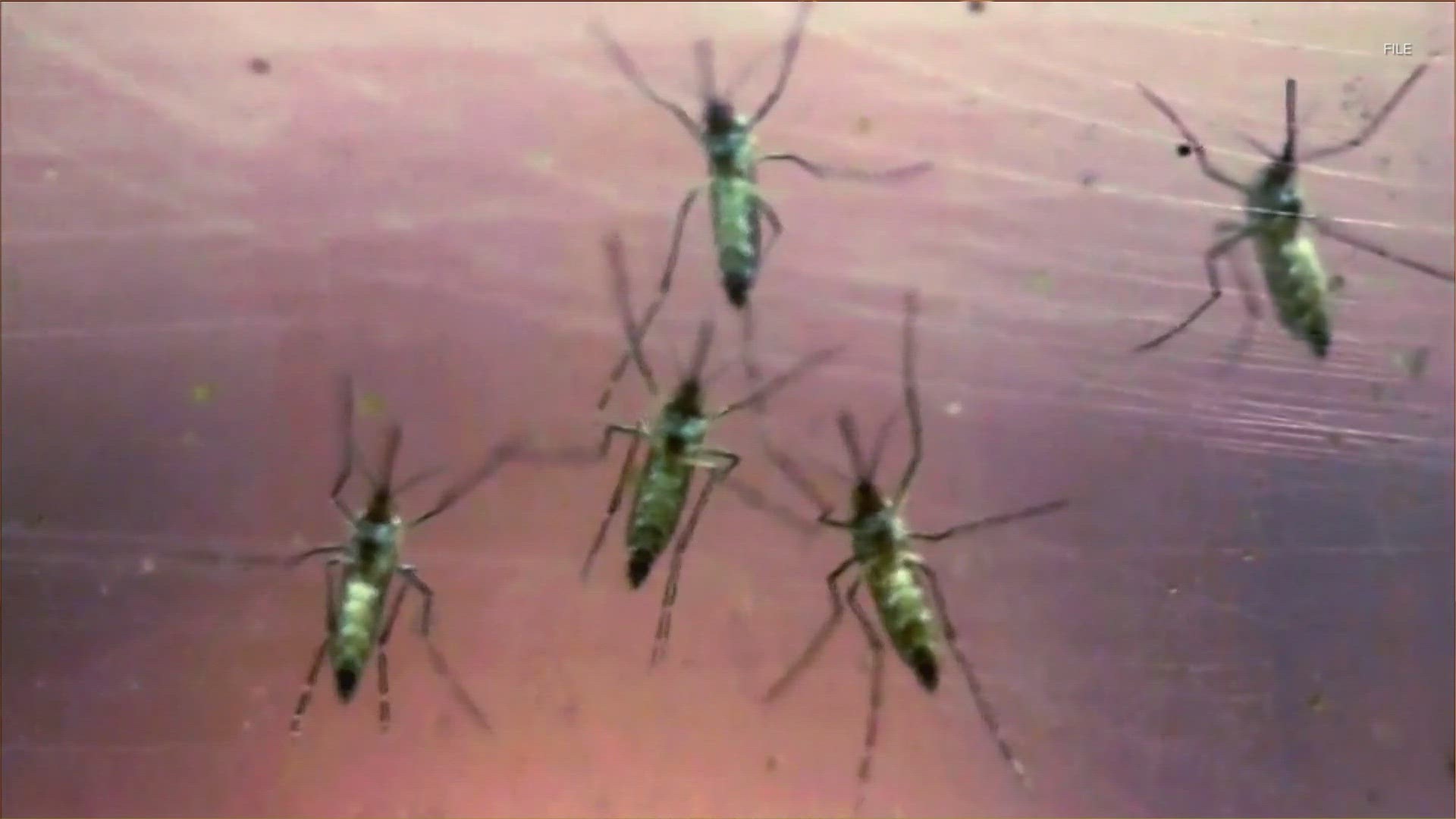TRAVIS COUNTY, Texas — A Travis County resident has died after developing an illness caused by West Nile virus, according to Austin Public Health (APH).
APH reported the death on Friday, saying it is the first West Nile virus death in Travis County so far this year.
“We are sad to report the first death of the year from West Nile virus in Travis County,” APH Health Authority Dr. Desmar Walkes said. “This death is a stark reminder that West Nile virus poses a serious risk, especially to older people and those with weakened immune systems. We’re seeing an uptick in mosquito breeding due to the recent rains and cooler weather in Texas."
West Nile virus is spread by the bite of an infected mosquito. Mosquitoes can become infected when they feed on the blood of infected birds and can then transmit the virus to humans and animals. Severe West Nile infections can cause neurologic complications, including encephalitis and/or meningitis.
APH said approximately one in five people infected with West Nile virus develops symptoms including body aches, headache and fever, rash, vomiting and diarrhea. Those 60 years old and older and/or with compromised immune systems are at a higher risk of severe symptoms.
To date, APH said the Environmental Health Services Division has identified 26 positive pools of mosquitoes carrying West Nile virus this year in 12 ZIP codes. Those include: 78702, 78703, 78704, 78721, 78722, 78723, 78727, 78741, 78751, 78754, 78757 and 78759. APH said it will continue to monitor and expand testing for mosquito pools.
To prevent West Nile spread and infection, residents are encouraged to abide by the "four Ds." APH lists those as:
- "Drain standing water: Mosquitoes breed in standing water and need as little as one teaspoon of water. Emptying water that accumulates in toys, tires, trash cans, buckets, clogged rain gutters and plant pots will eliminate places for mosquitoes to lay eggs and reproduce.
- Dusk to dawn: Although different species of mosquitoes are active at different times of day, the Culex mosquito that spreads West Nile virus is most active between dusk and dawn
- Dress: Wear pants and long sleeves when you are outside. Wear light-colored, loose-fitting clothing; mosquito-repellent clothing is also available
- DEET: Apply insect repellant: Use an EPA-registered repellent such as those containing DEET, picaridin, IR3535, oil of lemon eucalyptus, para-menthane-diol or 2-undecanone. Apply on both exposed skin and clothing"
West Nile virus is not contagious among humans, and there is no vaccine or specific treatment for the virus.
To learn more, you can visit www.AustinTexas.gov/WestNile or the Texas Department of State Health Services' West Nile website.

